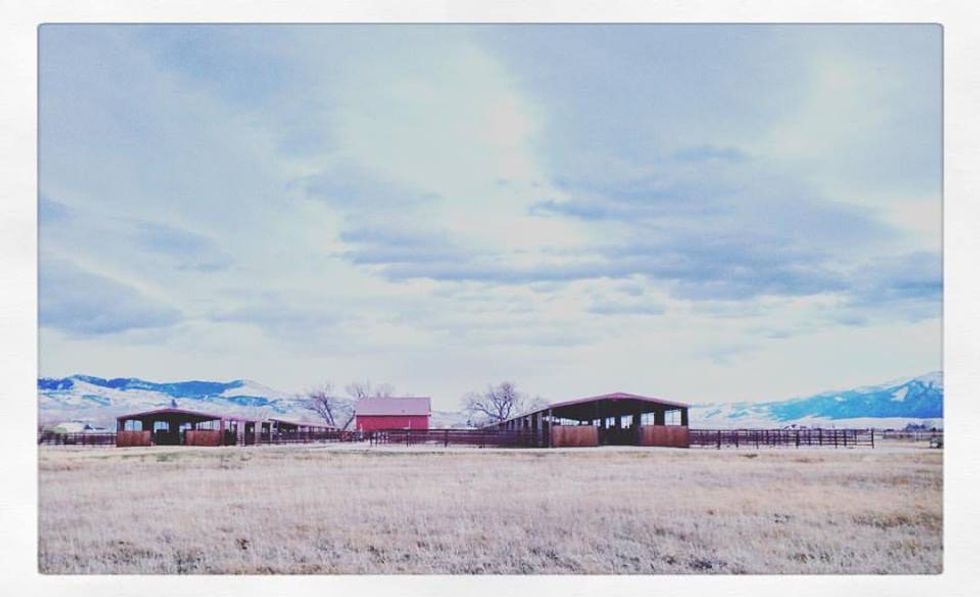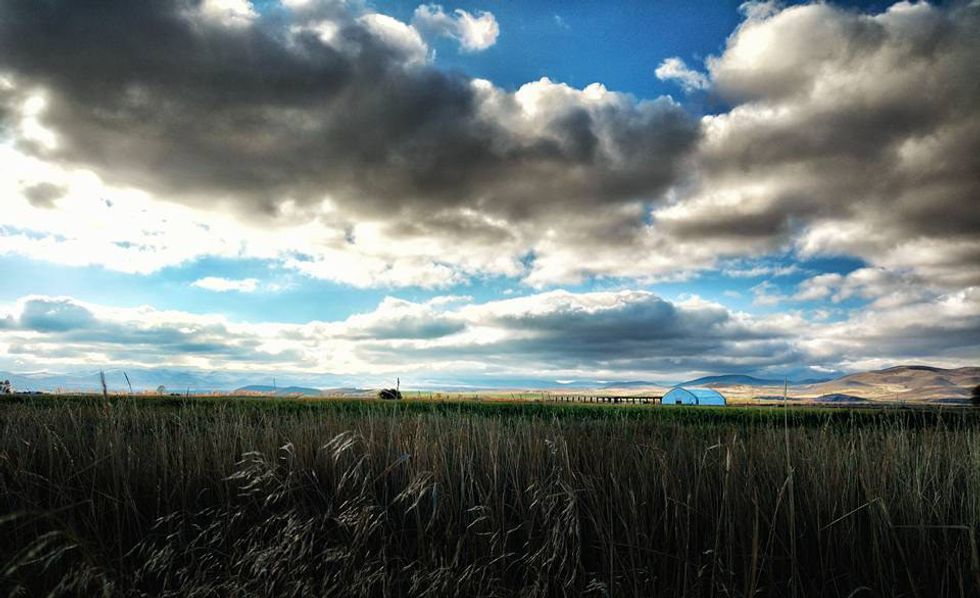Every fall, students from all over the country come to Dillon, Montana to begin their college careers at the University of Montana Western. Some of these individuals will choose to major in Natural Horsemanship. Seventy percent of those individuals choosing to major in Natural Horsemanship will come from out of state. They all came to Montana Western for one reason: to earn their Bachelor's of Science Degrees in Natural Horsemanship.
Okay, great, but what does that even mean? Here is my best effort at translating this into the english language. Hang in there with me for a minute.
Firstly, at the University of Montana Western all degree programs are based on an Experiential Learning approach. We call it "Experience One". This hands-on approach to higher education has opened a door for a Bachelor's of Science degree in Natural Horsemanship. The Natural Horsemanship degree is a four year degree designed to provide it's graduates with knowledge and skills in equine behavior, equine care/management, equine science, natural horsemanship techniques, equine facilities management, and a deeper understanding of the equine industry as a whole.
It is also important to note that this four-year Bachelor's degree is offered exclusively at the University of Montana Western.
This is a program where students are required to bring a horse because they will have three years of horsemanship classes. A college barn is provided that is designated completely for Natural Horsemanship majors (check it out at http://montanacenterforhorsemanship.org/) Natural Horsemanship majors spend a large amount of their time taking classes on horseback.
Here is a small sample of our curriculum:
{All classes listed in bold are horsemanship classes where students ride their own personal horse. All classes listed in italic are horsemanship classes where students either ride an assigned young horse or their own personal young horse. All other classes are the usual lecture class.}
EQUH 155 Intro to NH: Gaining Confidence and Respect
EQUH 252 NH: Building a Relationship
EQUH 254 NH: Harmony With The Horse I
EQUH 255 NH: Harmony With The Horse II
EQUH 351 NH: Refining The Foundation I
EQUH 352 NH: Refining The Foundation II
EQUH 497 NH: Methods of Teaching Horsemanship
EQUH 453 NH: Young Horse Starting & Development
EQUH 301: Practical Instruction of Haltering and Handling
EQST: Sales Preparation I & II
EQUH 454: Equine Behavior
EQUS 101: Intro to Equine Studies
EQUS 201: Basic Horse Care & Nutrition
EQUS 202: Equine Science I
EQUS 203: Equine Science II
EQUS 204: Equine Facilites Management
EQUH 205: Equine Event Management
Folks, this is just a sample of our curriculum. It's not everything that is offered in our degree. If you want to take a look at the catalog for a Natural Horsemanship degree, check out https://www.umwestern.edu/images/department/regist....
Let me take you guys just one step further: what about a minor?
Brilliant question. Although students can choose from a multitude of minors available at the University of Montana Western, there are four main focus areas that they can choose to minor in as well.
1. Science ( a lot of pre-vet or vet technicians choose this route )
2. Psychology ( students aiming for Equine Therapy, Hippotherapy, or Equine Assisted Psychotherapy choose this option )
3. Management ( students will take business classes alongside their NH classes; students are typically posed for barn management/business management upon graduation )
4. Equine Instruction ( students will take additional NH classes designed specifically for Instruction; these students typically are pursuing a career in education, instructing, and/or training )
Lastly, what do graduates do with this degree?
The most wonderful (and often understated) aspect of the Natural Horsemanship degree is it's diversity. Receiving an education in Natural Horsemanship offers students a multitude of options post-graduation.
Some graduates get accepted into vet schools. Some graduates go on to work in the Equine Pharmaceutical industry. Other graduates work as authors for Equine Magazines. Natural Horsemanship graduates often seek and find jobs as Equine Facility Managers. There are other individuals who work as Equine Therapists, Equine Assisted Psychotherapists, and Equine Hippotherapists. There are now graduates finding jobs as Riding Instructors. The possibilities and opportunities for Natural Horsemanship graduates are available. They are doors that these graduates are knocking on.
Throughout their education students are gaining real-world experience. They are shoeing horses, examining horses for soundness, developing equine diet programs, designing lesson plans for riding lessons, they are riding horses, starting young horses, preparing horses for competitions, preparing horses for sales, managing equine events, and the list could continue further.
In the end, they are still college-graduates but they have had the advantage of a hands-on, experiential college education. These graduates have learned that having an open-mind is essential to a successful career in the equine industry. They understand that horsemanship isn't about being right or wrong. They understand that horsemanship is about being willing to change what your doing in order to help a horse become the best he/she can be. This degree is their start into the equine industry. Oftentimes, for the students who grow up in suburbs on the East Coast, its their only shot into the Equine Industry. So thankfully, there is a place for them at the University of Montana Western.
If you have any questions, shoot me an email at ava.duncan@umwestern.edu.
All photo's are taken on-site at The Montana Center For Horsemanship.

























